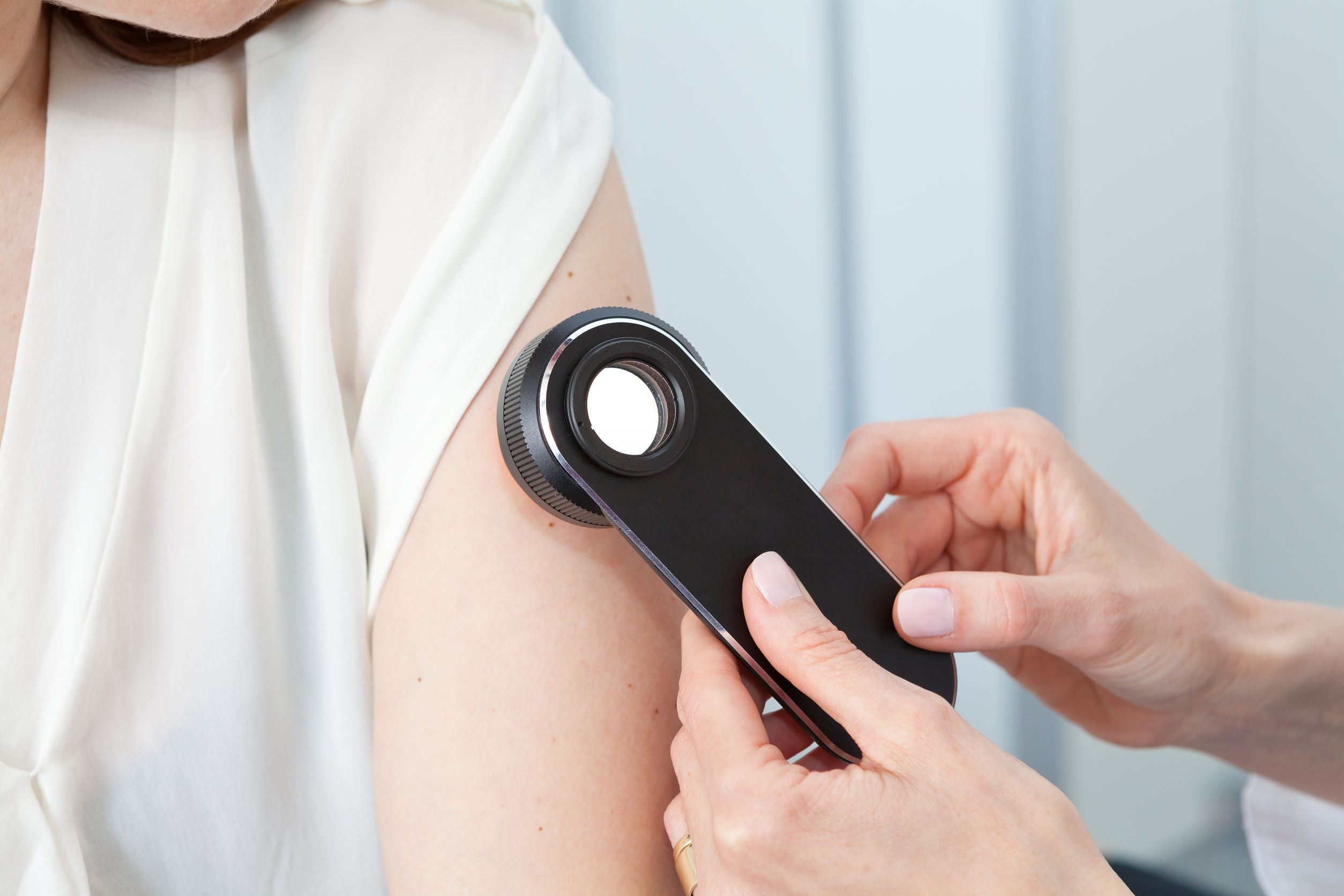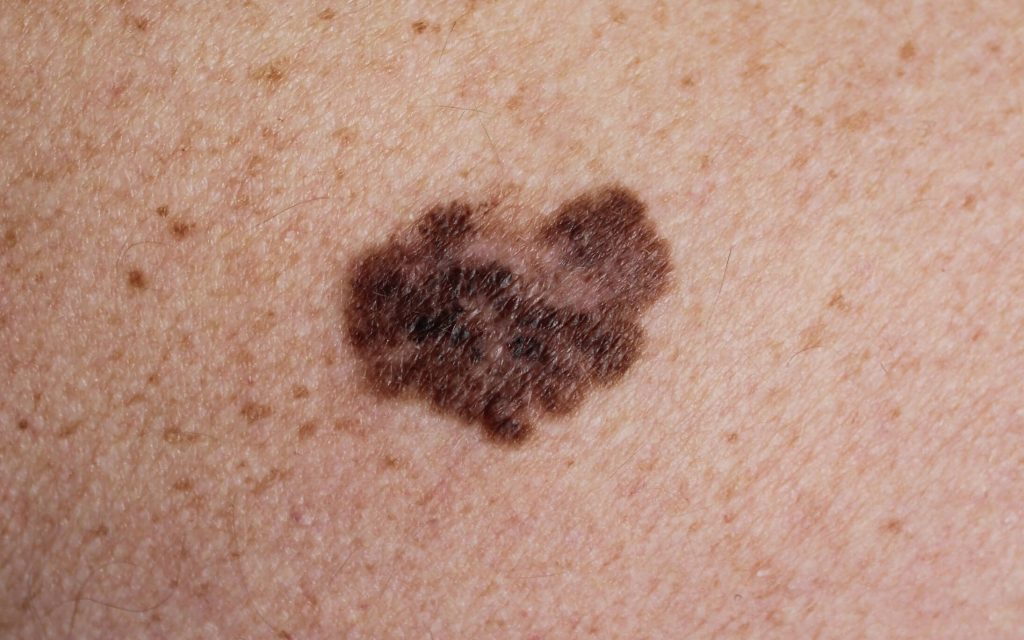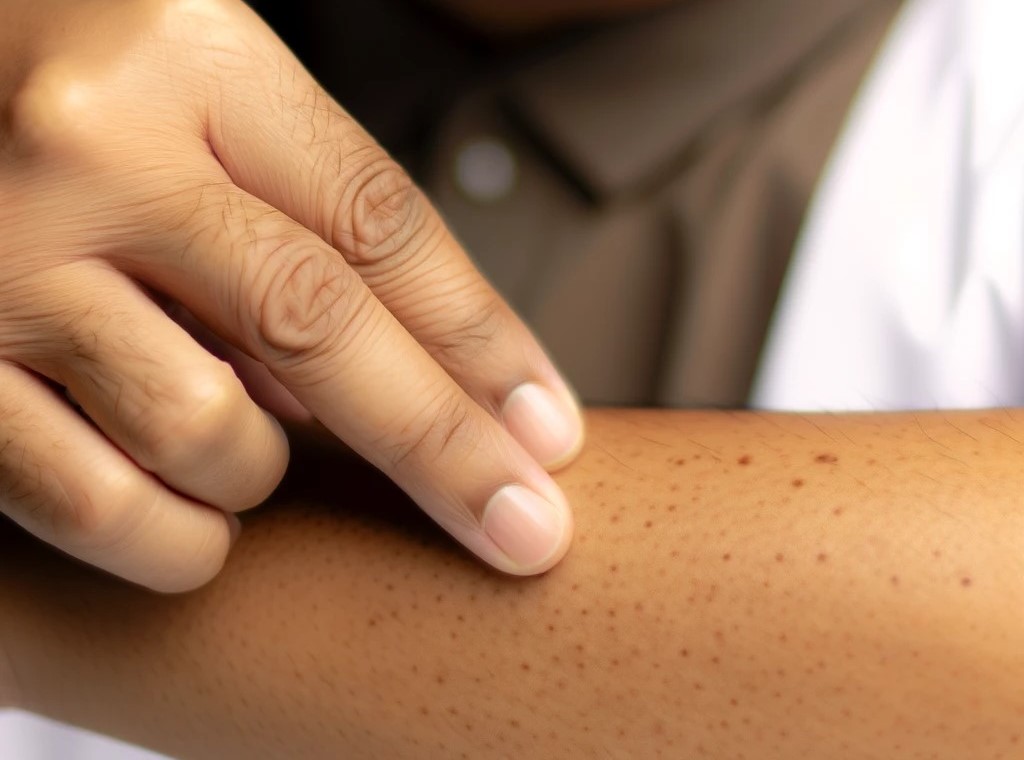
Medically Reviewed by Dr. Lee Hwee Chyen
MBBS MRCP (UK) FAMS (Dermatology)

Skin cancer, a prevalent and potentially serious health concern, affects millions globally each year.
Skin cancer can manifest in various forms, and its appearance often depends on the type of skin cancer. Generally, skin cancer can be identified by certain key characteristics.
Basal Cell Carcinoma (BCC): The most common type of skin cancer, BCC usually appears as a small, shiny bump or nodule on the skin, predominantly on areas frequently exposed to the sun, like the head and neck. It might also resemble a pearly or waxy bump, a flat, flesh-coloured or brown scar-like lesion, or a sore that heals and then reopens.
Squamous Cell Carcinoma (SCC): Typically found on areas of the body damaged by UV rays from the sun or tanning beds, SCC appears as a firm, red nodule or a flat lesion with a scaly, crusted surface.
Melanoma: They often resemble moles and can be identified using the ABCDE rule: Asymmetry (one half of the mole doesn’t match the other), Border irregularity, Color changes, Diameter (greater than 6 mm), and Evolving size, shape or colour.

Skin cancers can vary in appearance. They might be small, shiny, waxy, scaly, firm, red, or have irregular borders. Any new, unusual growths or changes in existing moles should prompt a consultation with a qualified dermatologist.

Yes, individuals with dark skin can get skin cancer. While darker skin has more melanin, which offers some protection against UV radiation, it does not provide complete immunity against skin cancer.
Yes, skin cancer can indeed develop on parts of the body that are typically covered and not exposed to sunlight. While exposure to ultraviolet (UV) radiation from the sun or tanning beds significantly increases the risk of skin cancer, it can also occur on areas that do not receive much sun exposure.
Skin cancer can appear on the scalp, beneath the fingernails or toenails, on the palms, soles, genitals, or even inside the mouth. These areas might be overlooked during routine checks, but they are equally important
Not all sunburns will lead to skin cancer, but sunburns do increase the risk. A sunburn is an indication of skin damage caused by UV radiation, which can lead to changes at the cellular level and potentially result in skin cancer over time.
Yes, skin cancer can be fatal, particularly if it is not detected and treated early. The prognosis and risk of death largely depend on the type of skin cancer and its stage at diagnosis.
Melanoma is the most aggressive form of skin cancer and can be life-threatening if not treated early. It has a high potential for spreading to other parts of the body (metastasis), which makes it more dangerous.
Basal cell carcinoma (BCC) and squamous cell carcinoma (SCC), the more common types of non-melanoma skin cancers, are generally less lethal. However, if left untreated, they can still lead to serious complications and, in rare cases, be fatal, particularly if they spread or are located in sensitive areas. Any suspicious growths on the skin should thus be reviewed and assessed by a dermatologist.
Many wonder whether eczema can resolve without treatment. The answer depends on the individual's type of eczema, age, environmental factors, and overall health status. Read on to learn more about eczema and the appropriate management strategies for this condition.
Acne is a skin condition that can be exacerbated by certain cosmetic ingredients. Understanding these ingredients can help prevent acne flare-ups and maintaining healthy skin. Read on to learn more.
Unwanted hair growth is a common problem affecting both men and women and can manifest as dark, coarse hair on the face, chest, or back. Learn more about this condition here.